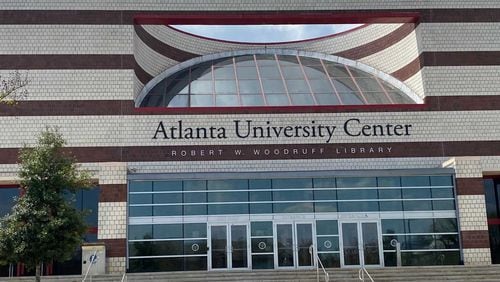Atlanta’s largest, private colleges and universities announced Monday they will require students to get the COVID-19 vaccine in order to be on campus for the fall semester.
Emory, the state’s largest private university, with about 15,000 students, said widespread vaccinations are “crucial” to a full return to campus.
“Student vaccinations will create a healthier environment in our classrooms, which will be at full density during the fall,” the university’s president, Gregory Fenves, said in a message posted on its website. “It will also allow for student life activities including programs, athletics and intramural sports, performances and events, and appropriately-sized gatherings.”
For now, Fenves said Emory will not require vaccinations for staff and faculty, but he recommends they get vaccinated. Students will be able to apply for an exemption to the vaccine requirement based on medical conditions or strong personal objections.
Emory allowed a limited number of students on campus this school year, and required students living on campus to get a weekly COVID-19 test.
.@EmoryUniversity will require students to be immunized for #COVID19 for the fall 2021 semester. We will have all students back to campus and vaccinations will create a healthier environment for everyone. I encourage each student to get vaccinated. https://t.co/qjMJRe3NHd
— Greg Fenves (@gregfenves) April 19, 2021
The Atlanta University Center, home to the city’s historically Black colleges and universities, also announced Monday it will require students, faculty and staff to get the COVID-19 vaccine in order to be on campus for the fall semester.
The schools — Clark Atlanta University, Morehouse College, Morehouse School of Medicine and Spelman College — have more than 8,000 students combined.
“Using the latest scientific data to implement vaccination protocols is the next step in keeping our community safe,” the schools said in a joint statement. “Vaccination of our community members is critical to continue meeting our highest priority — maintaining the safety and wellbeing of our constituents.”
The Atlanta University Center’s statement said being fully vaccinated means two or more weeks have passed since receipt of the second dose in a two-dose series, or two or more weeks have passed since receipt of one dose of a single-dose vaccine. They will allow medical or religious exemptions, the center’s spokeswoman, Beverly James, said.
The schools are private institutions, so state officials did not have a role in their decision-making process.
The AUC schools held online-only classes during the fall semester, citing concerns about the spread of COVID-19 on their campuses. They allowed a limited number of students back on campus for the spring semester. The COVID-19 positivity test rate at the center has been less than 1%, according to its website.
Several colleges nationwide in recent weeks have announced plans to require students to get vaccinated to be on campus for the fall semester.
Employers have struggled over whether to mandate vaccinations. The U.S. Equal Employment Opportunity Commission released guidance in December that employers can require vaccinations, but they must provide reasonable accommodations for those who can not be inoculated for “sincerely held” religious beliefs or medical reasons.
Please return to www.ajc.com for updates.
About the Author







